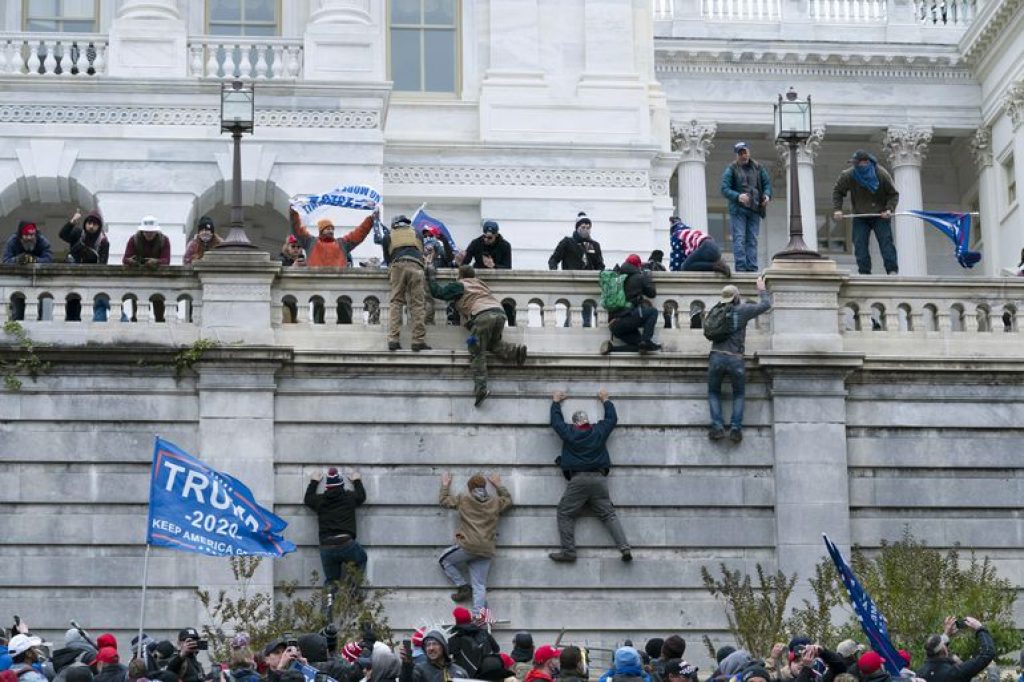WASHINGTON (AP) — The legislative committee investigating the storming of the U.S. Capitol has been stepping up its efforts in recent days and calling for a score of individuals, including four close associates of then-President Donald Trump, to testify.
Panel members have made it clear they want to move quickly in collecting testimony and documents related to the attack. One of the witnesses, Steve Bannon, could be criminally charged with contempt for ignoring the commission’s subpoena.
The AP explains what the investigation consists of, what its causes were and what its possible consequences will be.
WHAT IS BEING INVESTIGATED?
Unlike other Trump-era probes — such as his relations with Russia or the one that led to his impeachment for his pressure on Ukraine — the fundamental facts of January 6 are known. A group of Trump fans, encouraged by their falsehoods about voter fraud, brutally assaulted the guards and forced their way into the Capitol with the design of preventing the certification of Joe Biden’s electoral victory.
However, some unknowns remain, and lawmakers are determined to uncover all the facts and unravel their reasons in order to prevent something like this from happening again.
The commission is looking into all aspects of the insurrection, including what Trump was doing that day and what ties there were between the White House and the far-right mob that invaded the legislative palace.
The financing of the rally called just before the uprising is also in the crosshairs.
“The biggest unknown is, what was the president’s involvement? What was the involvement of White House staff? What did the president know about who was going to attend this rally? And what did he do when he found out?” said Rep. Adam Schiff, chairman of the House Intelligence Committee and a member of the panel investigating Jan. 6.
“There are a lot of unanswered questions,” Schiff told C-SPAN.
Trump’s allegations of voter fraud have been repeatedly refuted, by judges, election officials and even his own attorney general, William Barr. No case has risen to a level where the outcome of the election could change.
EXTENSIVE RESEARCH
Another goal of the investigation is to learn why the Capitol Police — as well as federal, state and local police — were so ill-prepared for the insurrection and whether the police response was adequate once the outbreak of violence began.
Another issue is the role of tech companies, such as messages placed by far-right elements on Facebook and Twitter.
Last week, members of the commission gave a hint that they were expanding the investigation when they called Jeffrey Clark, a former Justice Department lawyer who became a Trump ally, to testify. Calls for Clark to testify and turn over documents reveal that part of the investigation will focus on the chaos reigning at the Justice Department when Trump and his allies tried to politicize that office and pressure its employees to justify allegations of voter fraud.
The commission will use other simultaneous studies, such as the judicial processes launched by the Department of Justice to more than individuals who participated in the uprising. However, in the end, the report of the legislative commission will be a separate document.
WHAT POWERS DOES THE LEGISLATIVE PANEL HAVE?
For now, the commission is conducting interrogations behind closed doors and not public hearings, in an attempt to paint a picture representative of what happened that day and who was responsible.
But that’s not always easy, especially when it comes to Trump associates who realized during his presidency that there are no repercussions for those who flout Congress.
The commission has the authority to issue subpoenas and even to charge anyone who ignores them with contempt. That will happen this week when the panel will decide on indictee Bannon for refusing to testify.
The full chamber would then have to vote on whether to turn the recommendation over to the Justice Department, which would then have to decide whether to criminally prosecute that individual. Biden has said he prefers the department to move forward with such a process, but Attorney General Merrick Garland did not indicate what his decision will be.
WHAT’S NEXT?
The commission of inquiry has so far called 19 people to testify and is set to scrutinize thousands of documents.
Aside from Bannon, panel members have indicated that “we are communicating” with two other former Trump administration officials: former White House chief of staff Mark Meadows and former defense official Kashyap Patel. It remains to be seen whether Dan Scavino, who was Trump’s director of social media, will cooperate with the investigation.
Of the subpoenas to testify, 13 were for officials who helped plan the events leading up to the violence, including the rally that same day Trump harangued his supporters to “give them everything.”
These individuals have been summoned to testify in individual sessions, scheduled for late October and early November.
Apart from that, the commission is being assisted by the current administration of Joe Biden, which is handing over data and documents. Biden rejected Trump’s claim to leave the documents in reserve for executive privilege and it is estimated that they will be delivered to Congress in mid-November.
For now, it is not known when the commission will conclude its inquiries and deliver its final report.
